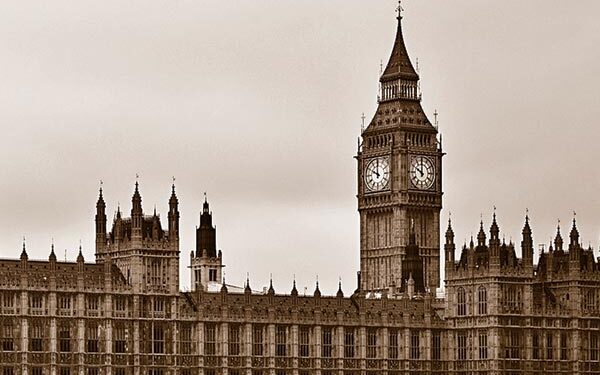The following are the excerpts of the proceedings in the House of Commons on the agreement with Tata Steel to invest in a project for moving towards low-carbon steelmaking in Port Talbot
 Under this deal we have protected jobs and ensured that we will continue to have a steelmaking facility in Port Talbot that supports the diversity in the supply chain
Under this deal we have protected jobs and ensured that we will continue to have a steelmaking facility in Port Talbot that supports the diversity in the supply chain

Helen Morgan (North Shropshire) (LD)
THE green transition should present exciting opportunities to build a fair, more prosperous economy for the benefit of communities across the UK, but the job losses involved here highlight that, for some workers, when the industrial landscape shifts around them there might not be an opportunity to benefit from those opportunities. They need to be supported to train and retrain throughout their adult lives, so will the Minister take this opportunity to commit to the development of a national skills strategy?
Ms Nusrat Ghani
That is a sensible point. There are skills strategies in lots of different portfolios within industry, and in these particular circumstances, as I mentioned, a transition board will be stood up with £100 million to do exactly that—to ensure that people are redeployed and reskilled so that they can continue to work in the sector.

Nick Smith (Blaenau Gwent) (Lab)
The impact of the war in Ukraine has emphasised the importance of the UK’s sovereign steelmaking capacity, yet an electriconly arc model means that we will have to import supplementary virgin steel and be unable to produce highend automotive steel. Does the Minister accept that, under this deal, the selfsufficiency of our steel industry has been dealt a real blow and that our defence capabilities are badly undermined?
Ms Ghani
The answer is no. Under this deal we have protected jobs and ensured that we will continue to have a steelmaking facility in Port Talbot that supports the diversity in the supply chain. We also realise how uniquely important the blast furnaces in Scunthorpe are. We have talked about looking at hydrogen, but as I mentioned, it is untested at this scale to work within the timeframe that is needed. This deal is really good news for the UK steel sector, enabling it and us to reach our decarbonisation targets and ensuring that we are dealing not with virgin steel but with scrap steel in a way that can be recycled within UK industry. It ensures the longevity of the steel sector in Port Talbot.

Sammy Wilson (East Antrim) (DUP)
No matter what gloss is put on this today, 3,000 jobs have been sacrificed on the Government’s altar of net zero and decarbonisation. There can be no hiding from the fact that there are huge costs associated with this policy, and that they are becoming apparent week after week. Despite what the Opposition spokesperson said, the fact is that job losses are associated with this policy. We have seen it with steel, aluminium, oil and gas—we could go on and on. Will the Minister not accept that, as a result of this policy, we now have strategic industries under threat, we are losing jobs, we are putting greater pressure on taxpayers, we are pushing production overseas and we are making ourselves dependent on foreign producers?
Ms Ghani
The reality is that one of the furnaces in particular was coming to its end of life and the other was mature, so a decision had to be taken on whether the company would want to continue, considering the loss it was making every day in producing steel, or to transition to making cleaner steel. That was a commercial decision. It was important for us to ensure that steelmaking in Port Talbot would not disappear but continue, and this is the option that the company went for. It is the option that it has a supply chain for, and it was best that we supported it through this process and ensured that there were fewer job losses.
The reality is that any transition is going to impact jobs, which is why it is so important to ensure that support is available to enable people to skill up and transition. That is why the transition board has been set up with £100 million to help people on that journey. It is not fundamentally about achieving net zero; it is fundamentally about the age of the furnaces on the site, about the lossmaking in the steel sector in the UK, particularly at this site, and about what decisions the company would take next. It was important for us to support the UK steel sector and provide it with £500 million—it has an overall envelope of £1.25 billion—to ensure that steelmaking continues in Port Talbot.
















